Moving forward from the Easter attacks
Sri Lanka is at crossroads again and this time up against a threat that has much significant global presence. In fact, religious extremism, racism and ultra-nationalistic views are on rise every part of the world and on collision course with our resolve for coexistence.
By Pradeep N. Perera
Like an air-borne virus, extremist views spreads freely through ever connected dark web of internet, looking for disillusioned souls to foster. Islamic State like organizations heavily rely on internet to recruit followers from far and beyond from their physical presence.
Such strategies allow them to create a loosely connected network around the globe that act with little assistance from each other and yet with common goals and synergism while leaving little to no physical evidence and visible and clear connections between them, thus making it hard to combat with traditional counter terrorism methodologies and laws. Governments and intelligence agencies around the world have become accustomed to this reality and heavily depend on intelligence gathering to identify, follow and nullify a threat before it causes destruction. Sadly, that didn’t happen in Sri Lanka.
What is more gut wrenching than this heinous crime, is the criminal negligence and incompetence shown by the Sri Lankan government and the relevant authorities in national security circles. Much discussion has been had in this regard and it has proven beyond any doubt that this attack was a result of catastrophic failures of our leaders.
Let’s leave this attack alone for a moment, but the government cannot escape from repeated negligence of warnings from law abiding citizens, that notably included many from Muslim community, about these groups for years. While it is beneficial for political survival to find someone else to place the blame, as general public, we will find little benefit in it. Those valuable and innocent lives can’t be brought back and significant damage to the booming tourism industry can’t be overcome overnight. Thus, as nation, we need to move forward and we need find sensible ways to move forward.
We may not fully understand the gravity of religious extremism, particularly Islamic extremism and evilness that represents, yet. This isn’t like the separatist war that we fought long, hard and prevailed. LTTE was a secular outfit with a finite scope while Islamic state (IS) is not. After all, it is a difficult task to find middle ground or any compromise with individuals who preach and celebrate death of infidels, that who are none believers of extremist Islamic views. As for our concern, Sri Lanka comes under “far abroad ring” in Islamic State’s three-pronged global strategy where they sought to “attack and polarize” till those regions become a part of the caliphate.
We, as a nation, of course has been through the worst during the days of LTTE but, with this Easter Sunday massacre, we enter in to a different conflict that has a much larger global scope. It also mark a new paradigm for race relations and religious co-existence in Sri Lanka. A new dynamic that we all are not familiar with yet and the panic mode that has set off after the attack is a testament for that. Thinking differently and learning from previous experiences will help us to make as fewer enemies as possible. As uncertain as where it will take us, we must navigate intelligently so that we won’t be an accessory to extremists’ goals that try to drive a wedge between us. Isolation and generalization of these acts to entire Muslim community will only drive suspicion and resentment further among us and will result in breaking down vital communications that are essential to achieve our goals. As we have seen, it doesn’t take very many to commit unthinkable amount of destruction. While the government must act swiftly and decisively to ensure the safety of general public and nullify any terrorist acts, we must realize that if there is any group that can defeat Islamic extremism ideologically, that is the Muslim community. This is not in turn to hold them responsible but they are our best bet. We must give them that necessary time and space to have that debate among themselves.
As it has been often said but never enough, you can kill a man much easier than his ideology and we should also remember that one cannot shoot at someone until he picks up a gun. As difficult it is, we may want to focus on stopping someone becoming an extremist rather than waiting to stop an extremist. So, this is time for resolved minds to prevail and us to be wise with our actions and not play into short-sighted political gains or self-destructive action plans. Only thing worse than the incompetence is the haste actions to overcompensate the incompetence. By doing so, you just err twice.
There is no silver lining in this carnage but if we are to seek one, it is the opportunity that arises from it to address the menace of Islamic extremism heads on in Sri Lanka. This event has settled the debate of whether existence of Islamic extremism in Sri Lanka is a myth or not, once and for all and showcase the major security threat that poses to all of us, providing a legitimacy to investigate deep into these extremist fractions that propagate violence, examine their strategies and financiers and root out these groups and their sympathizers.
Such opportunities, however, come with huge responsibilities and those responsibilities should be taken very seriously. Country must act promptly and aggressively to bring those responsible for this attack and their enablers to justice. However, we should also be mindful that, this should not be an opportunity for ill-advised and adversarial actions that may seem to appease or suppress one community over the other. Of the aftermath of the attack, there were many opinions and suggestions on what went wrong and how to fix it.
Some of them, however, may not serve our best interests and couple of examples are noteworthy here. It was suggested that we should impose a ban on burka. Of course, it can be argued as a common sense safety precaution. Fun fact here though, for more than two decades, we did not seek to ban the attires of LTTE suicide bombers. The real question here, however, is that why Sinhalese parliamentarians would bring such proposal instead of dozens of Muslim members that we have in the parliament.
After all, those are the presumed leaders of the Muslim community. If one is politically shrewd, those Muslim members would have been coerced to come forward with such suggestions and deal with the tricky situation. In fact, by not forcing them to do so, we have provided them with an easy escape route from their responsibilities to make difficult decisions while appearing ourselves to infringe up on minority religious rights.
Further, it has been suggested that intelligence officers and security personals who are under custody for alleged violations of the laws of the land should be released to energize the intelligence circles. That is very counter-productive and in fact it is an insult to many dedicated sleuths in these agencies. This is the time for law and order across the board. Fair hand of justice that we intend to unleash on these criminals and their accomplices, should be applied to the rest as well. Credibility and self-accountability matter always but it is a must in situations like this. In fact, this is the very thing that current government did. They applied laws selectively to appease certain Muslim politicians and groups when they turned blind eye to the rise of these extremist groups. So, in some sense, it is cynical for us to complain about that while asking to break the laws for our convenience.
Going to back to dealing with current situation, it is extremely important to get to the bottom of this threat and nullify it and trust the judgement of our armed forces and intelligence agencies while dealing with this difficult task. However, it is equally important to remember that we are dealing with a portion of our own country and to make a clear distinction between them and the extremists.
In this context, it would have been better if the government had issued a call for surrender to those who may have been associated with IS and their affiliates in Sri Lanka. This maybe symbolic but such small gesture would have sent a clear message to Muslim community that we are after the extremist who are armed and pose a danger to the society but at the same time we want to help those who may have fallen into wrong propaganda, further assuring the majority moderate Muslim community that this is a common fight against extremism. Tamils in this country can relate to this better than others but we should try to understand the helplessness an average Muslim feels for the atrocities of extremists who have committed inhumane acts in the name of their religion.
While healing process and continuous security operations are ongoing, it is also time for early post-thoughts to the tragedy and have a look at the larger picture. It is unbelievable that we have let religious schools to be established in Sri Lanka. Simply, that cannot be happening.
Every child in Sri Lanka should receive an education that is secular in general, from Monday to Friday. Of course, we should be open to have a discussion about the content of religion and history in classroom syllabus. Religious schools are for Sundays as for other communities and should never be a place for hateful ideologies. We must also openly and vehemently oppose to any laws that are specifics to religious groups such as sharia laws, simply because we don’t have different laws when it comes to dealing with other ethnic and religious groups in Sri Lanka and such propositions would only add to divisiveness and suspicion among ethnicities.
Our legal system must be updated with stricter laws to stop hate speech in Sri Lanka in all forms and on all platforms with a special attention to social media that has become a breeding ground for extremist views and false information, and hate crimes should carry harsher punishments. Reality is that Sri Lanka is a multicultural and multi-religious society and it should protect and respect right to worship of every Sri Lankan without fear or intimidation. Anyone or any ideology that think otherwise should not find footing in Sri Lanka. It may seem a daunting task for some but it will be easier when we start accepting that all groups are sons and daughters of this country and we all have equal rights.
This is also a time to revisit how our intelligence agencies appears to work. From a perspective from very far and judging solely by current events, it appears as though intelligence agencies in Sri Lanka entirely depend upon the government for directions and operational guidance. That ought to be changed. Argument here is that, unfortunately, it doesn’t appear that intelligence agencies has done any significant intelligence gathering on IS and their affiliates in Sri Lanka since they have become known to exist.
If they had done so, those people would not have been able to purchase acres of lands and maintain training camps around the country at will. If we were to believe that intelligence agencies knew those activities but politicians prevented them from taking actions, then at least we would have seen all these places had been raided at immediate aftermath of Easter Sunday. That didn’t happen. Simply, once it has come to attention, a persistent security threat should never leave intelligence radar irrespective of the governmental interest in taking actions against it or not. Maybe, it is time for us to think about infusing some legitimate and practical independency to those agencies.
There must be buffer layer that make functionalities of these agencies are less susceptible to short-sighted/short term political maneuvers. It may sound scary to some because such independency may perceive as a “deep state”, a term that alludes to shadowy governments run by intelligence circles but apparently our current system has significant deficiencies and, in most developed countries, intelligence agencies work semi-independently gathering intelligence and following threats while reaching out to the political leadership for action plans against a threats.
A country must do everything possible to protect its’ people and we failed to do that on Easter Sunday. We must learn from that move decisively and intelligently forward to make Sri Lanka safe for all of us. We have had enough corpses in Sri Lanka and we don’t need anymore. When we start to see those kids died on Easter Sunday and those kids died at the safe house just as kids, we will be in better place as a country.
(The author is a scientist who is currently living in California, United States)
-
Still No Comments Posted.



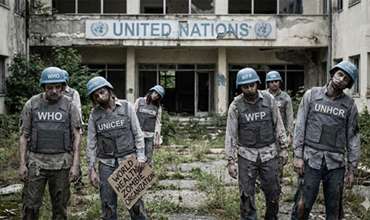


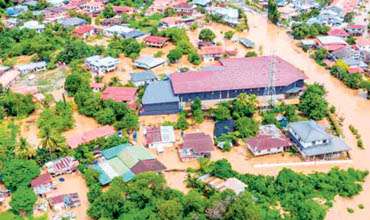
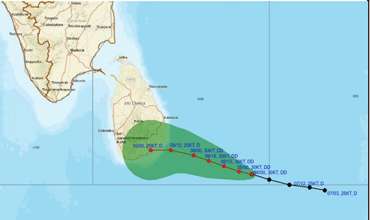
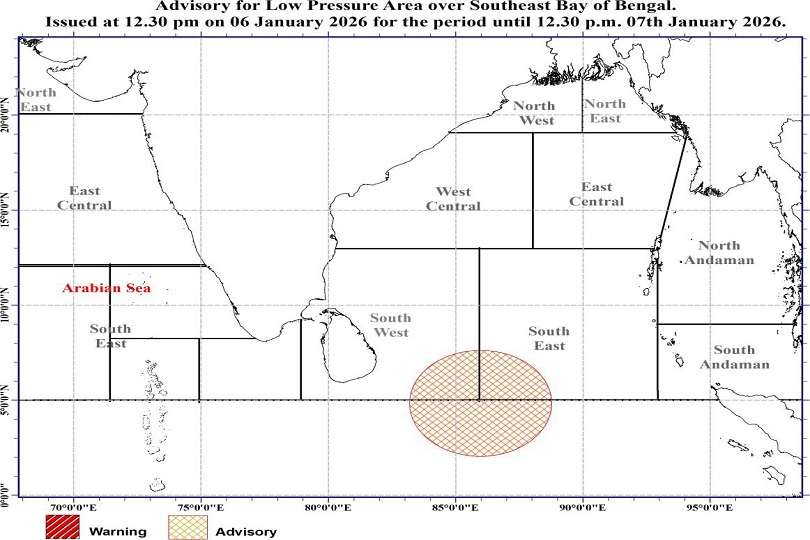
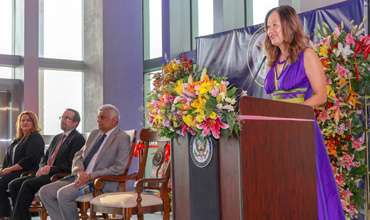
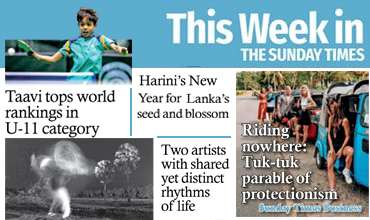
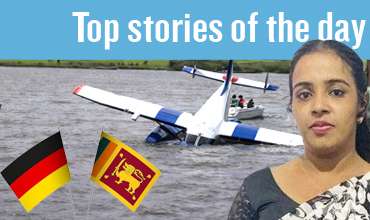


Leave Comments